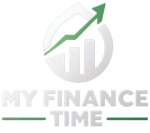Buying a home is one of life’s biggest financial decisions—and finding the right home buyer loan can make that journey smoother and more affordable. Whether you’re a first-time homebuyer, a returning buyer, or simply looking for better mortgage options, understanding today’s available loans, grants, and assistance programs can give you a real advantage.
This guide explores a range of homebuyer programs, from federal assistance to down payment help, including insights into credit score requirements, loan structures, and state-specific support.

Content
What Is a Home Buyer Loan?
A home buyer loan refers to any type of financing designed to make the homebuying process easier, particularly for first-time homebuyers. These loans often come with low or no down payment requirements, competitive rates, and more lenient credit score standards.
In some cases, they’re supported by government agencies or community development programs, giving you added financial security and flexibility.
Conventional Loans with Low Down Payments
Not all homebuyers need government-backed loans. Conventional loans offer great flexibility—especially for those with good credit and steady income.
Key Options Include:
- Conventional 97 Mortgage: Backed by Fannie Mae, this requires just 3% down, ideal for first-time buyers.
- HomeReady / Home Possible: Tailored to low- to moderate-income buyers, with reduced private mortgage insurance (PMI) and flexible debt-to-income allowances.
While credit score requirements vary by lender, most prefer scores of at least 620–680 for conventional approval.
Federal First-Time Homebuyer Programs
For many, government-backed mortgage options offer a secure path to homeownership. These programs reduce upfront costs, ease credit score restrictions, and are widely available.
FHA Loans
- Minimum credit score: 580 with 3.5% down, or 500 with 10% down
- Available to all buyers, not just first-timers
- Great for buyers with lower income or limited credit history
VA Loans
- 0% down payment
- No PMI required
- Accessible to veterans, active military, and surviving spouses
- Flexible credit and income guidelines
USDA Loans
- Geared toward rural and some suburban properties
- 100% financing available—no down payment
- Income limits apply based on family size and location
- Competitive rates and low PMI costs
Each of these first-time homebuyer programs opens the door to affordable homeownership, even for buyers with limited savings or non-traditional credit histories.
Down Payment Assistance Options
One of the most significant hurdles for new homeowners is the down payment—but there are solutions. Down payment assistance (DPA) programs offer grants, loans, and matched savings to bridge the gap between your savings and what you need.
Common Types of Assistance:
- Grants: Do not need to be repaid
- Forgivable Loans: Disappear after living in the home for a set number of years
- Deferred Payment Loans: No payments until the home is sold or refinanced
Many DPAs are offered at the state or city level and can be layered with other home buyer loan products to reduce overall costs.
State-Based Homebuyer Programs
Every U.S. state has programs for first-time homebuyers, which may include below-market interest rates, reduced insurance premiums, or outright cash assistance.
Here are a few examples:
- Florida Housing offers HFA Preferred and HFA Advantage loans, plus closing cost assistance.
- New York State provides SONYMA loans with fixed interest rates and DPA programs.
- Illinois Housing Development Authority offers access to mortgage credit certificates and purchase grants.
Many of these programs also include mandatory homebuyer education, helping you better understand the responsibilities of ownership.
Other Mortgage Options to Explore
While government and low-down-payment programs dominate headlines, other mortgage options might better suit certain buyers depending on their long-term goals.
Additional Choices:
- Adjustable-Rate Mortgages (ARMs): Ideal for buyers who plan to move or refinance before the rate adjusts.
- Fixed-Rate Mortgages: Offers stable monthly payments over 15 or 30 years—ideal for long-term planning.
- Jumbo Loans: Suitable for high-cost areas where the home price exceeds conforming loan limits.
Even if you don’t qualify for a first-time homebuyer program, you still have multiple paths to finance a home affordably.
How to Apply for a Home Buyer Loan
Getting started with your home buyer loan doesn’t have to be complicated. Here’s a step-by-step overview to help you prepare:
- Review Your Credit: Pull your credit reports and check your credit score.
- Build Your Budget: Understand your monthly affordability including taxes, insurance, and maintenance.
- Compare Lenders: Don’t settle—compare interest rates, terms, and fees from multiple lenders.
- Explore Assistance Programs: Use online tools or contact your state housing authority to find down payment assistance.
- Get Preapproved: A preapproval shows sellers you’re serious and provides clarity on your buying power.
Taking these steps early improves your chance of qualifying for better mortgage options and securing the best deal for your financial situation.
Conclusion
A home buyer loan isn’t just a way to finance a property—it’s a launchpad to long-term financial stability. With so many resources available, including first-time homebuyer programs, federal mortgage options, and down payment assistance, you don’t have to let high costs or limited credit keep you from homeownership.
By understanding your options, comparing loans, and preparing your finances, you can secure a smart mortgage that meets your needs. From conventional loans to FHA, VA, and USDA programs, the right loan is out there. And with a little research, it could be your key to unlocking the front door of your new home.
FAQs
Can I qualify as a first-time homebuyer if I owned a home years ago?
Yes. Most programs define a first-time homebuyer as someone who hasn’t owned a primary residence in the last three years.
Is it possible to get a home loan with a low credit score?
Yes. FHA loans allow scores as low as 580 (or even 500 with higher down payment). VA and USDA loans also have flexible standards.
Are there loans with no down payment at all?
Yes. Both VA and USDA loans offer 100% financing with no down payment required.
Can I combine assistance programs?
In many cases, yes. You can pair a home buyer loan with down payment assistance, closing cost grants, and tax credits.

Johnny is a finance blogger who has been blogging for years. He’s familiar with everything that goes into it, and loves to share his knowledge with others.












